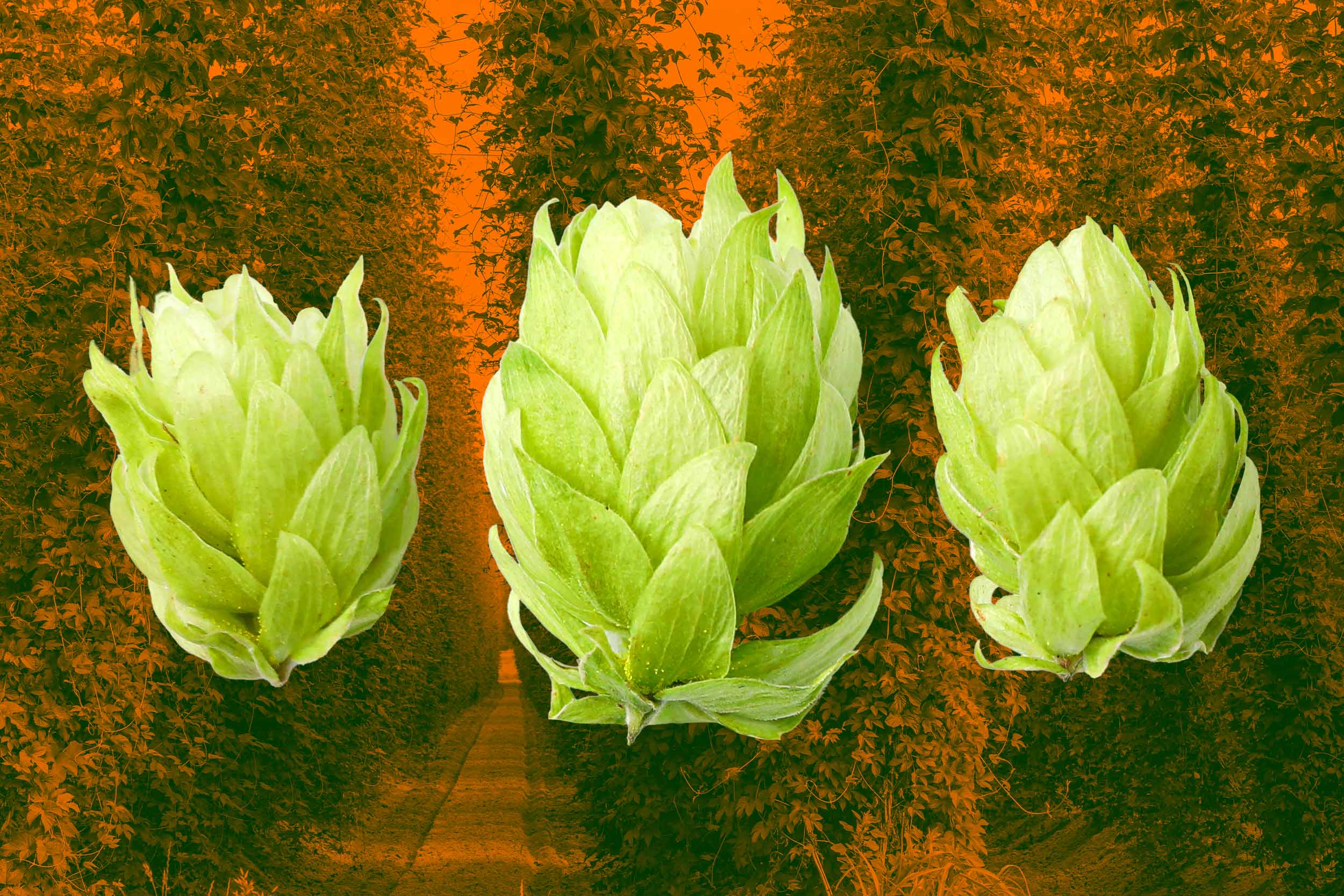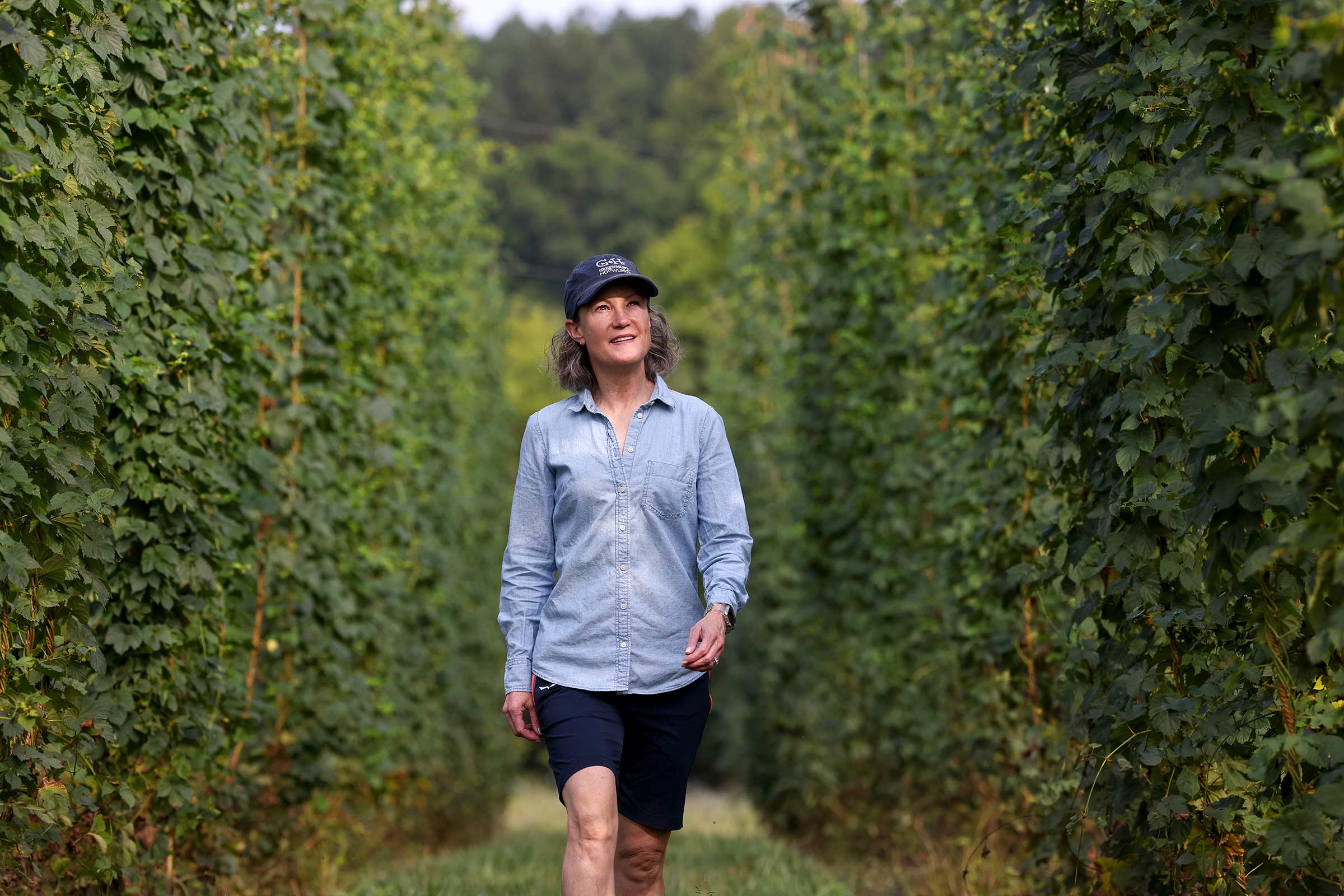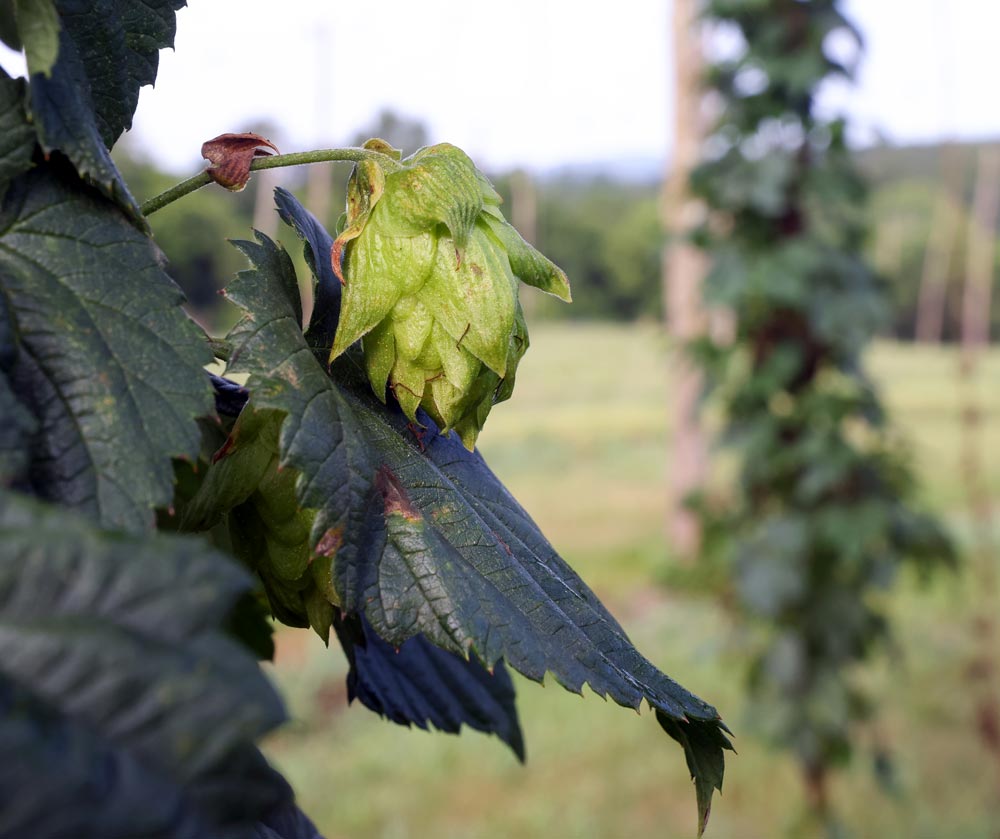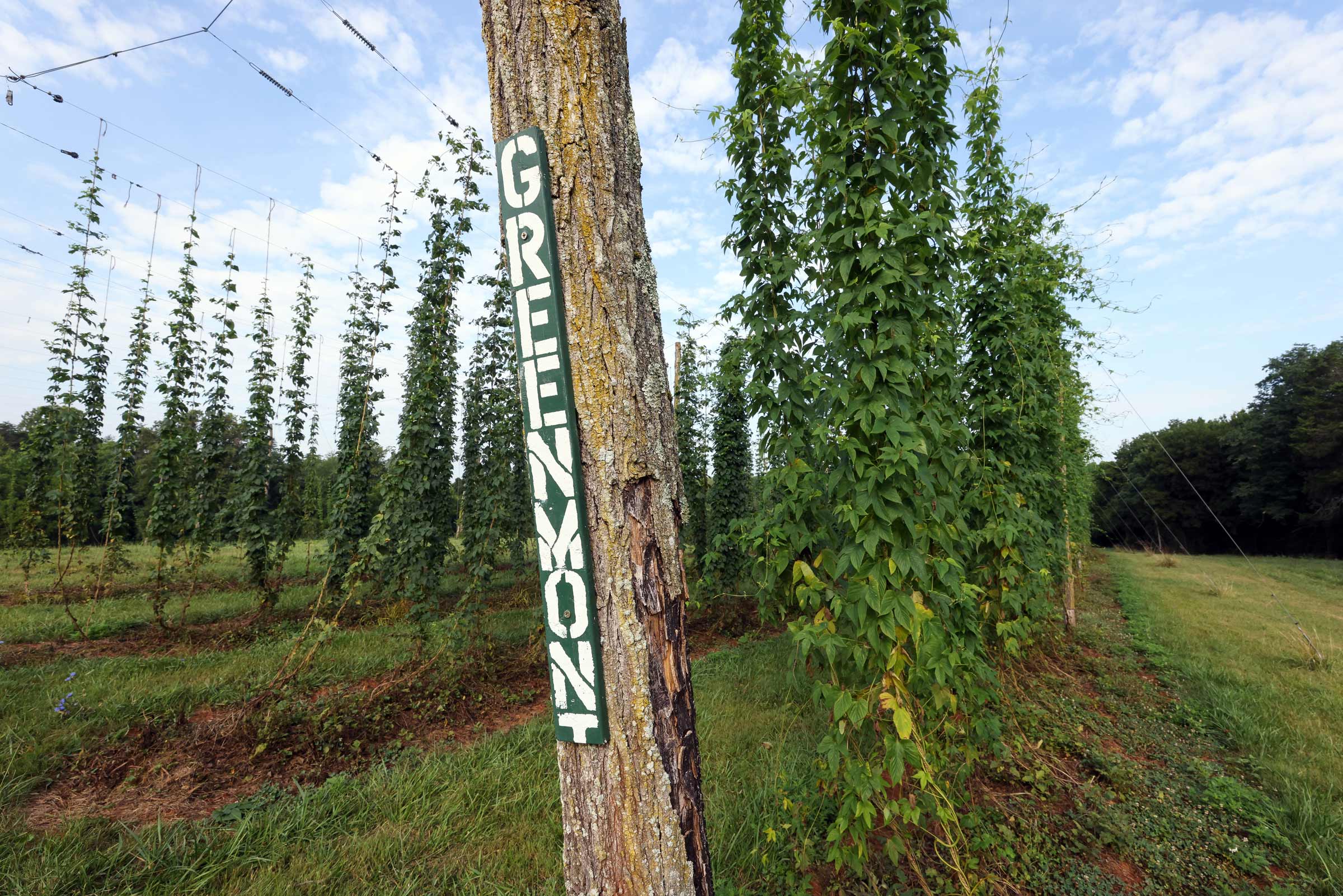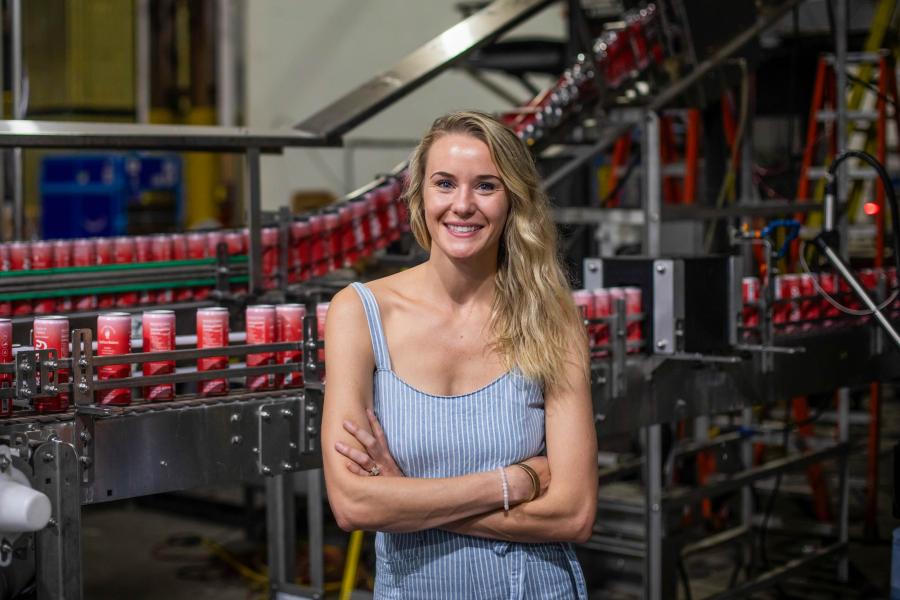In 2018, just weeks after the team harvested the first, small crop of hops, Jim Murray was crossing a stream on his motorcycle in a remote area of the farm when he had a hoppy accident: He noticed some vines that looked remarkably like the hops he had just seen harvested, growing out of the streambed and into the trees above.
“I mean, we had gone to all the trouble to import hops from Oregon, and here they looked just like hops. So I took out my pocketknife, cut a couple of pieces of them, crushed them, and they smelled like hops,” he said.
Tests showed the wild plants were indeed hops.
Though hop-growing was never widespread in Virginia, some growers did import the crop to Virginia between 1750 and 1800, Thomas Jefferson and James Madison among them. Genetic testing showed the find was a 100% American hop variety.
Greenmont Mother is Born
The hop variety, which the Murrays crossed with another Virginia hop and trademarked the hybrid as “Greenmont Mother,” has ostensibly been growing wild since around that time and, over centuries, adapted to Virginia’s climate.
Once the Murrays dug up the roots and started cultivating the hop, the difference became clear. In comparison to the modern hops they still grow, including Chinook, Newport and Cascade, Greenmont Mother matures faster, but later, and grows taller and more easily than modern hybrid varieties.
It is also naturally resistant to pests and resilient to local mildew and fungus from Virginia’s summer heat and humidity, decreasing the need for irrigation, pesticides and fungicides.
Agriculturist Davi Bowen uses biological fungicides and pesticides rather than chemical versions when possible, and underground drip irrigation lines deliver fertilizer and water to avoid spraying.
“They are 10 times more resistant than the other varieties,” Bowen said.
It’s a big win for Greenmont Farms’ sustainability goals, too. Two solar arrays currently generate enough energy to power farm operations and the main farmhouse.
“What’s really important to (my wife’s) family, and now important to me because I’ve lived there for 50 years, is the land itself,” Jim Murray said. “We have deep roots there. We care deeply about it, and we designed the farming operation to make it a sustainable farm that hopefully could be passed on to another generation.”
“It’s the house that my mother grew up in, which was once just cinder block,” Meghan Murray said. “And then I grew up in this house and now I have kids who are living in this house.”
Virginia Flavor
With a unique hop variety, the Murrays set about obtaining an agricultural patent, which can take about seven years. That patent could be approved in the next year or two.
